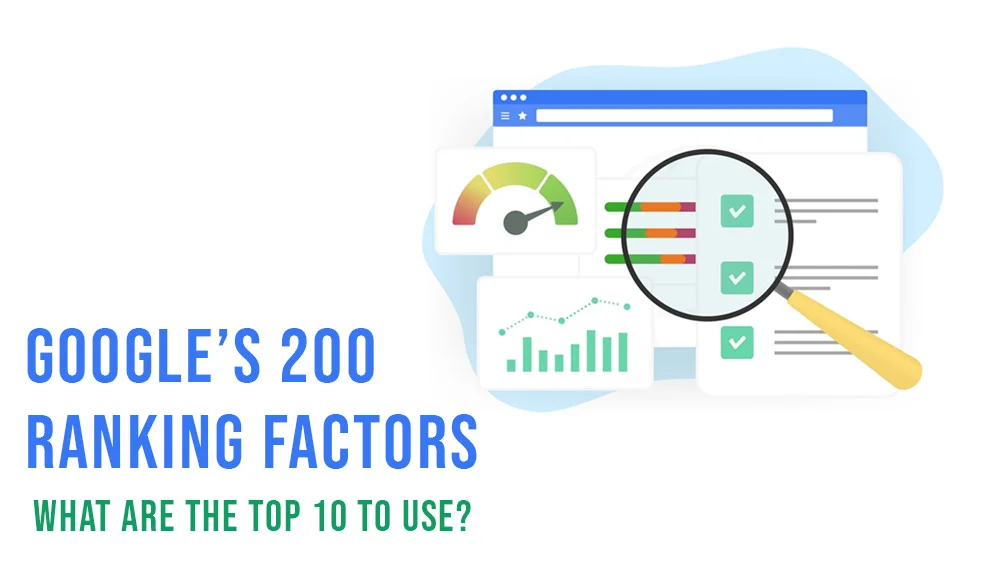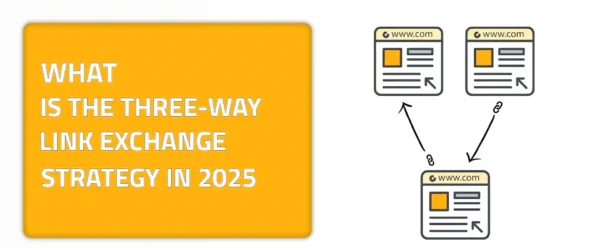Unveiling Google’s 200 Ranking Factors With the Top 10 Factors to Prioritize
You are likely doing everything right to gain the exact amount of visibility that you need. However, sometimes it gets a little tricky. Google’s ranking factors are revolutionizing digital success. That is why today we will discuss in this guide the top 10 most important factors to use and understand among Google’s 200 ranking factors.
Google’s 200 ranking factors were first announced by them in 2006. However, you may access all 200 anywhere. What I offer you in this guide is simply getting to know the top ten in order for this guide to be practical and useful for you.
If you’re planning to ascend and get on top of the search engine ladder with your visibility, hop along with me in this guide, as it will provide you with vital tips on how to optimize your domain or platform to fit SEO standards and know how to create strategies to enhance your online presence effectively. Dive in with us and enjoy the ride! Let me first define what a ranking factor is for you below.
What Is a Ranking Factor? A General Quick Overview
Evaluating and prioritizing web pages in search engines is the main goal of ranking factors. It is like a diverse set of criteria that search engines use in order to determine whether a website encompasses a wide spectrum of ranking factors. Including content quality, relevance, website structure, user experience, backlinks, and more. Each factor plays its own role in contributing to the web page’s visibility rate and ranking position. They follow a complex framework that the algorithm determines. One that sets all search results and helps in prioritizing them.
Simply put, ranking factors serve as a map that guides you on how to optimize your website. Offering insights into what you need to improve and enhance in your webpage. That serves the right purpose and aims to increase your webpage’s chances of appearing higher in search engine results pages (SERPs). It is crucial that you understand and leverage these factors. That is because they are of great importance and assistance that will help you achieve better online visibility and reach target audiences effectively.
Is it a Myth That Google Has 200 Ranking Factors?
The answer is no. It is simply not a myth. As a matter of fact, Google actually has two hundred plus ranking factors, not just two hundred. The thing is, since 2006, there have been hundreds and maybe even thousands of updates. Ones that believe me increased the number of it all. These updates are what made me create this guide for you. That is in order to help you focus on the most important factors that you should be using because Google’s 200 ranking factors are important but some are great to prioritize. Let’s dive in together and discover each one of the top ten.
I know that you might be wondering, Why ten? Why not twenty for example? The thing is, this is something that is more than debatable. What could be of top priority to me could be someone else’s not-so-important or useful. I gathered for you these ten based on extensive research that proved them effective when it comes to conversion rate optimization, the trustworthiness of these factors’ signals, allowing you to generate a higher organic growth rate, and helping you rank better in an overall manner. If this is what you’re aiming for, dive in with me and discover each one of the top ten.
Ranking Factor No. 1: Valuable Content That Provides Unique Insights
Whenever the word “content” is mentioned somewhere, I always link it with the word “creativity.” That is because getting creative with your content will do two things: increase your webpage’s engagement and allow people to actually enjoy their time on your website. I know how obvious this one factor may sound. You wouldn’t think that your content would be monotonous or dull. However, it is of great importance that I highlight this ranking factor for you because I have seen webpages and blogs with the most monotonic and repetitive content ever. Let me give you some tips on how to create unique and one-of-a-kind content for your webpage:
- Make sure that you comprehend the topic you’re writing about. A lot of content creators just take information from other blogs, change some words, and implement it in their own content. That is exactly what I implore you NOT to do. Understand what you’re writing about through thorough and extensive research. This will help you create a piece that is unique and purely from your perspective.
- Hire expert content creators. Do not just settle for anyone with no experience or background on how their content will affect your webpage’s SEO.
- Use facts and statistics from trusted resources. This will foster better credibility and help you answer questions that your audience may have.
- Don’t just write with meaninglessness. Writing words has to have meaning and depth. If it is not a strength that you have, like I said, hire someone that does in order to help give your web page value through content that is relevant, informative, and useful.
Ranking Factor No. 2: In-Depth Content Coverage
Content again? Yes, again, again, and again. A lot of people would’ve assumed by now that I would simply discuss backlinks or links in general, as they are actually some of the main factors that help you rank on Google. However, it is crucial for you to understand that content plays a huge role in helping you rank higher and better. That is the reason why I am focusing on it. In-depth content coverage is something that we discussed briefly above in our number one ranking factor. In-depth content is the act of avoiding writing thin content. Coverage of a wide variety of topics in an in-depth way will help you rank on the first page of Google’s SERPs. Here are some tips that may help you create in-depth content:
- Competitors are key here. If you cover topics that they missed, you’ll find yourself on top with an in-depth, unique piece of content that no one has taken the chance or time to write about.
- Make sure to cover relevant topics that indirectly answer questions that people have and have left unanswered.
- Make your content readable and interactive. Add images, graphics, graphs, and contextual links that will redirect users to other articles or content pages that elaborate more and are more relevant to your topic. CTAs are also of crucial importance as a content element that will guide your users on what to do next; don’t just leave them stranded.
Ranking Factor No. 3: Organic Clicks and Your Meta Description and SEO Title
This is one factor that proves to Google whether your webpage visitors like the content that you present or not. If you create valuable content, your organic click rate will increase, proving to Google that your content has great engagement. It will also allow you to rank due to your relevance to a certain word that people will search for. In order for all of that to happen, you need to write a very enticing meta description and a compelling title for your piece. Here are some of my tips that may help you write great meta descriptions and titles:
- Use words of value and power
- Ensure that you have your keyword in your meta description and title
- Maintain a word count that ranges between 8 and 16 words in your meta title
- Maintain a word count that ranges between 21 and 38 words in your meta description
- Ensure that you write what readers will benefit from by reading your article in your meta description
Your SEO factors are of the essence in order to increase your organic click rate. If you have them all optimized, then you will stand a chance and rank higher on Google.
Ranking Factor No. 4: Number of Backlinks From Sources of Relevance
The number of backlinks that you acquire is only important if you are acquiring trustworthy links from relevant sources. Backlinking is one of the top methods that people use to rank on Google. The problem here is that most people think that the more backlinks they acquire, the better their process will be. Unfortunately, that is not the case.
With backlinking, you will have to be extremely careful. You have to make sure that the links that you acquire and link your domain to are relevant to your content and are taken from trustworthy platforms. Otherwise, Google will actually ignore your platform and if we’re playing the worst-case scenario game here, Google may take down your webpage if it has too many toxic links or ones that are irrelevant to what you offer and write about. Acquiring high-quality and relevant backlinks is the key to a successful link-building strategy.
Ranking Factor No. 5: Loading Speed of Your Webpage
The speed at which your webpage loads is one of the most important factors that you should take into consideration when it comes to Google’s ranking factors. Google announced that core web vitals are playing a part in something called PageSpeed. Which is something that affects your webpage’s user experience dramatically.
Imagine with me the following: you’re now visiting a website and the page is loading with such amazing speed that it is keeping you engaged with whatever you’re reading or checking out. On the other hand, you’re on another webpage that is loading so slowly that you actually give up on the content you wanted to check out and leave it.
Which page will you come back to? Which one gave you a better connectivity experience? That is exactly what you should aim for as a factor in ranking with your page speed. Create strong HTML for your website in order to rank and avoid Google’s harsh ranking reduction, especially when you’re facing competitors that have better ranking due to their page’s HTML.
Ranking Factor No. 6: The Length of Your Content
I know I am back again and looping around content. Bear with me, though, will you? This is one factor that people keep discussing and have different opinions regarding. Some people believe that their content must range from fifteen hundred words to two thousand words per article for example. However, my opinion is actually different. Dear reader? You are more than welcome to take it or leave it. As I said, this is a very debatable topic.
Anyway, length is not the issue. You may need to write a 2000-word article if you need to cover the whole topic and create in-depth coverage for your topic. Furthermore, you can ignore anyone who says that this would be a mistake. Sometimes we content creators need to be brief, as we are not required to cover each and every topic in detail.
Only ones that we feel like completing with certain needed details. Short-form content is, on the other hand, not a great idea if your competitors, who are covering the same topic or one that is similar to it, use 2000 to 4000 words. If you, for example, write a 500-word article, Google may not allow you to rank like them.
Ranking Factor No. 7: Heading 1 and Your Keywords
This is one relationship that has been going strong until now. Joking aside, your H1 must have the keyword that you’re using to rank on Google. Why? Because it increases the rate of relevance that you get from Google. I am, however, against writing your “heading 1” with the same words that you used to write your meta title. Why? Because Google could perceive this as keyword stuffing and reduce your ranking chances. Advice from the SEO wise? Entice your first heading with a little addition to your keyword and make it interesting.
Take this article’s meta title and heading 1 as an example. The title says, “Google’s 200 Ranking Factors: What Are the Top 10 to Use?” While the first heading says, “Unveiling Google’s 200 Ranking Factors with the Top 10 Factors to Prioritize,” See the slight difference in the way I rephrased the heading to include my keyword, “Google’s 200 ranking factors,” yet change them not to be alike? That is exactly what I mean in order to not stuff in your keywords using a little bit of a spicing rephrasing of your heading 1 and meta title while making sure that you include your keyword in both to rank.
Ranking Factor No. 8: Your Website’s (DA) Domain Authority
You must’ve heard of domain authority as a ranking factor. I hate to be the one to break it to you but let me just tell you that it actually isn’t one of Google’s 200 ranking factors. Your webpage’s domain authority is, in fact, a tool that was created by MOZ.
If it is not a ranking factor, why am I actually including it here in this guide? Well, it is a very useful tool and MOZ, lucky us, uses signals that help elevate your Google rankings. That is why your domain authority is important. It proves to Google that your domain is one with clean backlinks, a strong one, and a trustworthy networking platform. So, let us all just simply say a big fat thank you, MOZ! For creating this awesome tool!
Ranking Factor No. 9: Ranking Through Mobile Usability and Accessibility
This is the age of mobile phones. It is unbelievable how some people never leave their phones! For that exact and not-so-understandable reason, your webpage must be of great accessibility and usability. That is, to enhance your user experience and allow them to use your platform from their mobile phones or any other device that has a decent internet connection. Working on your mobile usability will help you score a goal with Google and gain a high level of customer satisfaction.
Ranking Factor No. 10: Do NOT Over-Optimize!
I just said that to get your attention for our tenth and final ranking factor, which is me begging you not to overoptimize your page to be exact and overly accurate. Optimization is of great importance. As a matter of fact, it is crucial; however, you must be careful. Overdoing it may get you a penalty from Google, as it may perceive it as trying to manipulate the system or outsmarting it. Bottom Line: Optimize your domain for users, not the algorithm.
Wrapping It Up!
Yes, take a breath; you have finally made it to the end of our Google’s 200 ranking factors guide. With this guide, you can now prioritize what factors you should use to rank on Google and check out how your domain will react to your implementation of them.
Optimize your domain, create high-quality content, and don’t forget to create a strong backlinking strategy for it to work. If you aim to increase your website’s visibility and boost your reach, you can check out linkexchange.ai, develop strong networking relations, and acquire links from strong platforms with high domain authority!











